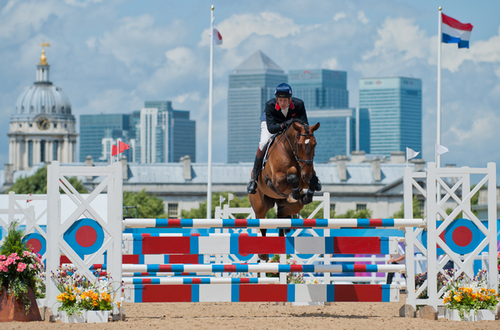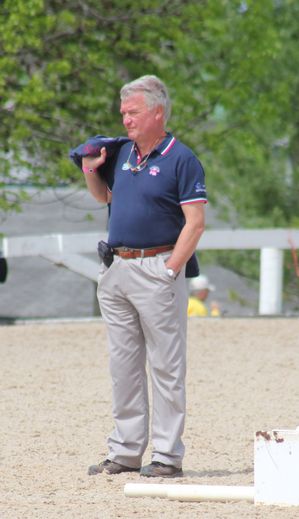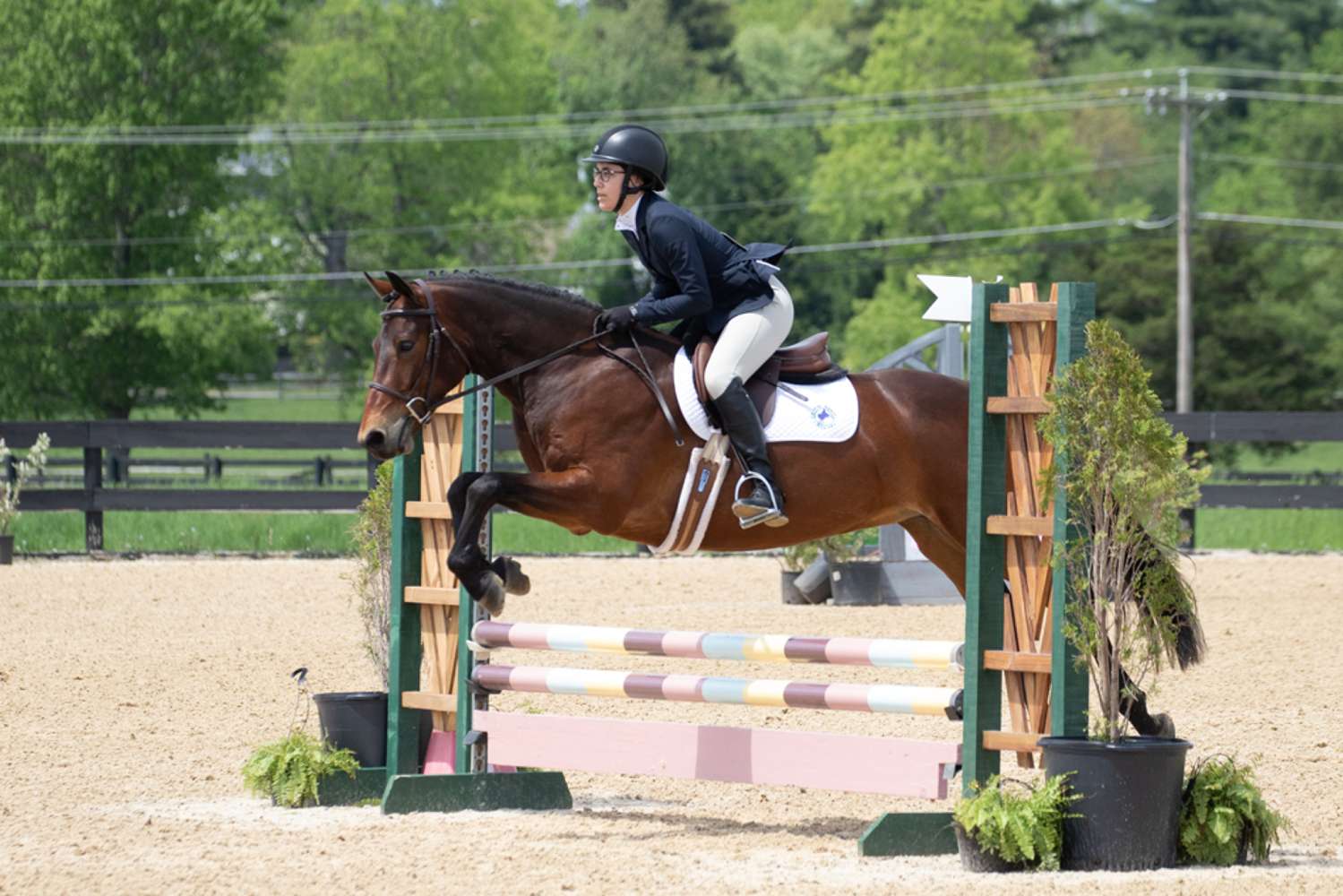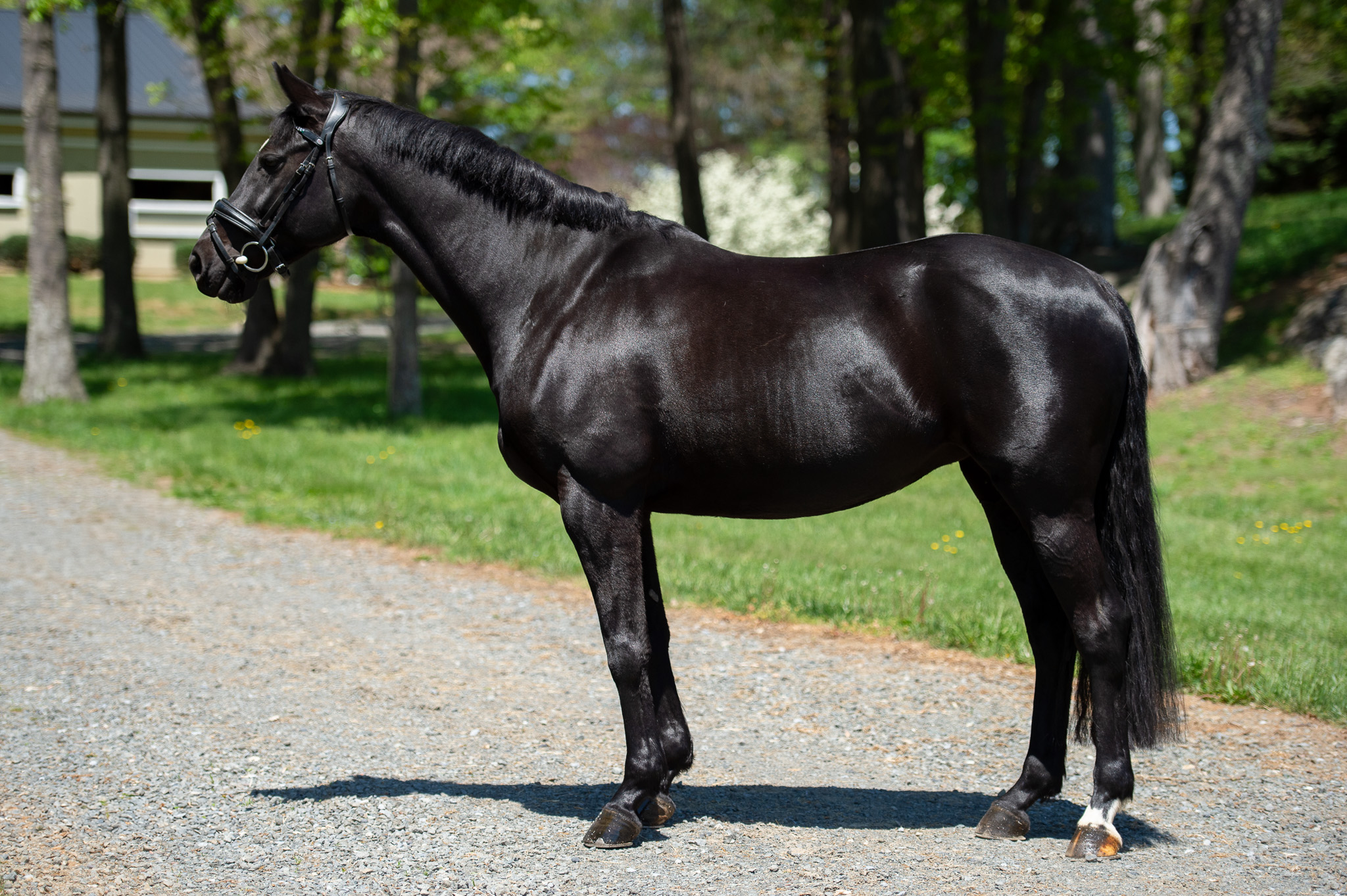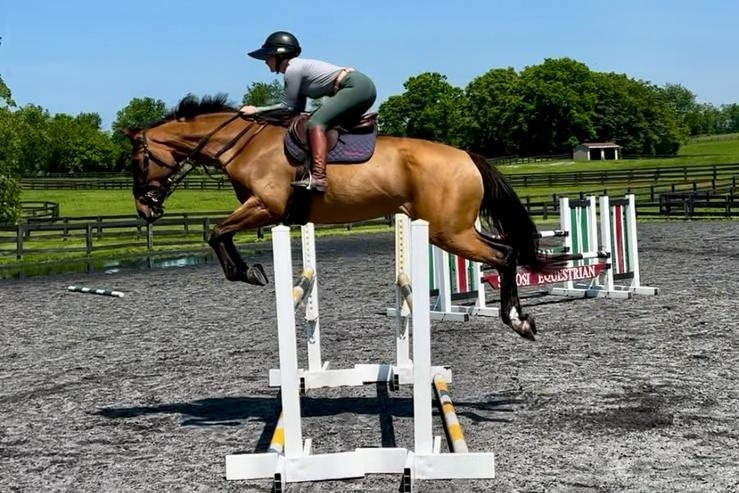Samantha Clark
Achievements
 Become an Eventing Nation Blogger
Become an Eventing Nation BloggerAbout Samantha Clark
Latest Articles Written
Alec Lochore – Behind the Scenes for London 2012 Eventing, part 2
Alec Lochore is the founder of Musketeer Event Management, he organises Burnham, Houghton and Cholmondeley Castle Horse Trials, has stints on the board of British Eventing and as chairman of BE’s National Safety Committee, as well as course designing, being an FEI Technical Delegate, Director of the Blair Castle Horse Trials in Scotland, and now he has taken on the role of Eventing Manager for the London 2012 Olympic Games. Check out part 1 of my interview with Alec on Monday and here is part 2 of our interview.
Alec Lochore – Behind the Scenes for London 2012 Eventing, part 2
Alec Lochore is the founder of Musketeer Event Management, he organises Burnham, Houghton and Cholmondeley Castle Horse Trials, has stints on the board of British Eventing and as chairman of BE’s National Safety Committee, as well as course designing, being an FEI Technical Delegate, Director of the Blair Castle Horse Trials in Scotland, and now he has taken on the role of Eventing Manager for the London 2012 Olympic Games. Check out part 1 of my interview with Alec on Monday and here is part 2 of our interview.
The Big Sky State
Alec Lochore – Behind the Scenes for London 2012 Eventing, part 1
As the founder of Musketeer Event Management, organising Burnham, Houghton and Cholmondeley Castle Horse Trials, stints on the board of British Eventing and chairman of BE’s National Safety Committee, as well as course designing, being an FEI Technical Delegate, Director of the Blair Castle Horse Trials in Scotland, and married to his beautiful wife, Emily with two young boys (phew!) – one might think Alec Lochore had enough on his plate to keep him busy, and drive most normal people insane. It was about a year ago now though, that he was offered the position of Eventing Manager for the London 2012 Olympic Games, and the unique opportunity, he told me, was just too fantastic to turn down,
PS: Completely off topic, but if you are a chronic time waster like me, and browsing Nico’s pictures of the Test Event (warning, you could lose hours, days!), check out Sara Algottson Ostholt and Mrs Medicott taking flying lessons into the water jump, and my personal favourite, Borough Penny ridden by Italy’s Vittoria Panizzon.
This article is also published on SamanthaLClark.com
Many Happy Returns!
Hamish & Sandhills Tiger – a parting of ways?
 everything else in between, as well as an honest and personal account of his own journey and admittedly, an ultimately slightly disappointing finish.
everything else in between, as well as an honest and personal account of his own journey and admittedly, an ultimately slightly disappointing finish. This article is also posted on SamanthaLClark.com
Hamish & Sandhills Tiger – a parting of ways?
 everything else in between, as well as an honest and personal account of his own journey and admittedly, an ultimately slightly disappointing finish.
everything else in between, as well as an honest and personal account of his own journey and admittedly, an ultimately slightly disappointing finish. David Stubbs – Master Craftsman
David Stubbs – Woodcrafting and so much more
Area 8 Young Riders Camp
Area 8 Young Riders Camp
Hyperbaric Oxygen Therapy & Helping the TPF Fire Victims, part 2
This part 2 of our article on Hyperbaric Oxygen Therapy and how it is helping the horses recovering from the True Prospect Fire. Click here for part 1 from yesterday, where we spoke with Dr Slovis from Hagyard. In part 2 we hear from Caitlin SiIliman about the True Prospect horses who are benefiting from the therapy and from Bruce Jackson who runs the Fair Hill Hyperbaric Chamber.
Caitlin told me Neville Bardos especially seems to be quite taken with the Hyperbaric Chamber!
Caitlin travels both horses about half an hour to the Fair Hill Training Center, the site of the event, where Bruce and Amy Jackson run the state of the art Equine Therapy Centre. Bruce told me that alongside the Hyperbaric Chamber, he also has a number of other treatments available,
Hyperbaric Oxygen Therapy & Helping the TPF Fire Victims, part 2
This part 2 of our article on Hyperbaric Oxygen Therapy and how it is helping the horses recovering from the True Prospect Fire. Click here for part 1 from yesterday, where we spoke with Dr Slovis from Hagyard. In part 2 we hear from Caitlin SiIliman about the True Prospect horses who are benefiting from the therapy and from Bruce Jackson who runs the Fair Hill Hyperbaric Chamber.
Caitlin told me Neville Bardos especially seems to be quite taken with the Hyperbaric Chamber!
Caitlin travels both horses about half an hour to the Fair Hill Training Center, the site of the event, where Bruce and Amy Jackson run the state of the art Equine Therapy Centre. Bruce told me that alongside the Hyperbaric Chamber, he also has a number of other treatments available,
Hyperbaric Oxygen Therapy & Helping the TPF Fire Victims, part 1
Hyperbaric Oxygen Therapy & Helping the TPF Fire Victims, part 1
Will Connell – World Class
I had the immense pleasure of spending some time scurrying after the British Equestrian Federation’s Performance Director, Will Connell during the World Equestrian Games here at the Kentucky Horse Park in Lexington last year, and saw for myself exactly what the job description couldn’t possibly encompass! For starters, although Will’s “day job” is running the World Class programmes for the four Olympic Equestrian disciplines (PDF), (Jumping, Dressage, Eventing and Para), during the WEG he actually took on the role of chef de mission for all eight disciplines.
Will Connell – World Class
I had the immense pleasure of spending some time scurrying after the British Equestrian Federation’s Performance Director, Will Connell during the World Equestrian Games here at the Kentucky Horse Park in Lexington last year, and saw for myself exactly what the job description couldn’t possibly encompass! For starters, although Will’s “day job” is running the World Class programmes for the four Olympic Equestrian disciplines (PDF), (Jumping, Dressage, Eventing and Para), during the WEG he actually took on the role of chef de mission for all eight disciplines.
Bruce Davidson – Still Going Strong, part 2
We continue the second and final part of our interview with Bruce Davidson today. Click here for part 1. We resume the conversation as Bruce talks about Buck, his legacy, and the future.
So what advice did Bruce give his son before he left for Badminton this spring, where incidentally he finished 21st after a clear round cross country, and the best of the North American contingent,
Bruce Davidson – Still Going Strong, part 2
We continue the second and final part of our interview with Bruce Davidson today. Click here for part 1. We resume the conversation as Bruce talks about Buck, his legacy, and the future.
So what advice did Bruce give his son before he left for Badminton this spring, where incidentally he finished 21st after a clear round cross country, and the best of the North American contingent,
Bruce Davidson – Still Going Strong, part 1
You could be forgiven for thinking that Bruce Davidson had perhaps finally settled into a comfy chair to enjoy watching his son, Buck carry the torch in those famous red and yellow colours; after all with a fistful of medals from every major Championship in almost each colour, a Badminton & Burghley win to his credit, having been a mainstay on the US leading rider list for many years, and now a member of the US Eventing Hall of Fame there wouldn’t seem to be much left to achieve. You would be forgiven, but you would be wrong! I made just this mistake and Bruce very kindly described to me exactly how busy he is, what excites him these days, and why we most definitely shouldn’t discount seeing him back at the very top of the game again. I’m incredibly honoured and grateful to Bruce for his time, and also completely bowled over by his utter lack of ego, willingness to talk, love of the game and, above all else, of course – the horse.
Check back Wednesday for part 2 of my interview with Bruce, where he discusses Buck, his legacy, and enjoying life. Thank you so much to Bruce for the interview and Go Eventing!
Bruce Davidson – Still Going Strong, part 1
You could be forgiven for thinking that Bruce Davidson had perhaps finally settled into a comfy chair to enjoy watching his son, Buck carry the torch in those famous red and yellow colours; after all with a fistful of medals from every major Championship in almost each colour, a Badminton & Burghley win to his credit, having been a mainstay on the US leading rider list for many years, and now a member of the US Eventing Hall of Fame there wouldn’t seem to be much left to achieve. You would be forgiven, but you would be wrong! I made just this mistake and Bruce very kindly described to me exactly how busy he is, what excites him these days, and why we most definitely shouldn’t discount seeing him back at the very top of the game again. I’m incredibly honoured and grateful to Bruce for his time, and also completely bowled over by his utter lack of ego, willingness to talk, love of the game and, above all else, of course – the horse.
Check back Wednesday for part 2 of my interview with Bruce, where he discusses Buck, his legacy, and enjoying life. Thank you so much to Bruce for the interview and Go Eventing!
Impact of the 2010 WEG on Kentucky
Results of an independent study conducted for the Kentucky Tourism Arts and Heritage Cabinet were released today, to much fanfare, at the Kentucky Horse Park. You can read the report, by Certec, Inc, out of Versailles, Ky, here [PDF] . Dr Pearse Lyons represented title sponsor Alltech with a couple of exciting announcements, one in the video below, and another that he’ll be in the lead car at the Tour de France next week to officially promote Alltech as the title sponsor of the Normandy 2014 WEG ( fun fact: Deauville is twinned with Lexington). Also speaking, John Nicholson for the Horse Park and Governor Beshear and his wife Jane, who I later bumped into in the tack shop, trying to decide on a bridle…all in a day’s work!



















